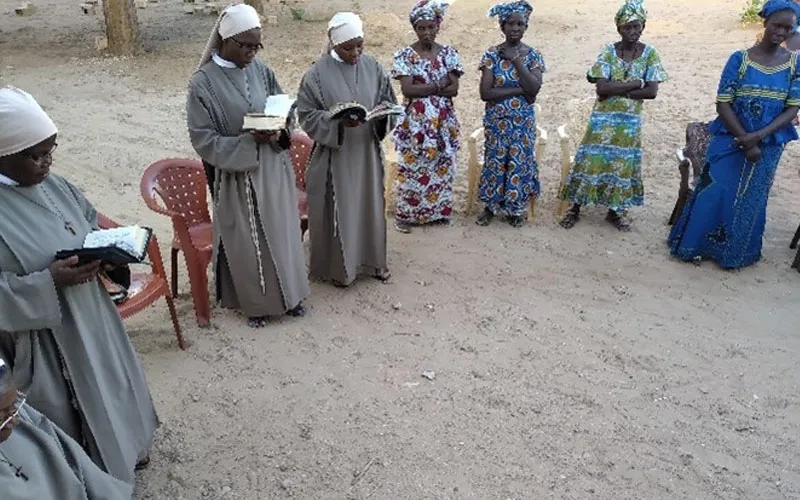Dakar, 19 December, 2022 / 8:20 pm (ACI Africa).
Members of the Religious Congregation of the Poor Clares who recently established a community in the Catholic Archdiocese of Dakar in Senegal are working against all odds, including prolonged drought and limited resources, to sustain their mission in the West African country.
In a message shared with the Catholic Pontifical and charity foundation, Aid to the Church in Need (ACN) International, the five members of the Poor Clares who arrived in the West African country in December 2020 say that they have been sustaining themselves by growing millet, peanuts, and corn.
The Poor Clares in Senegal also have a workshop where they make candles, medicinal ointments, and liturgical ornaments, which they then sell.
However, according to the December 10 ACN report, the Sisters’ living conditions are “more than modest” as they sometimes share the little food they have with their neighbors in the impoverished community.
The Catholic Nuns often have no electricity, ACN says, adding, “They have to pray by the light of lanterns.”








